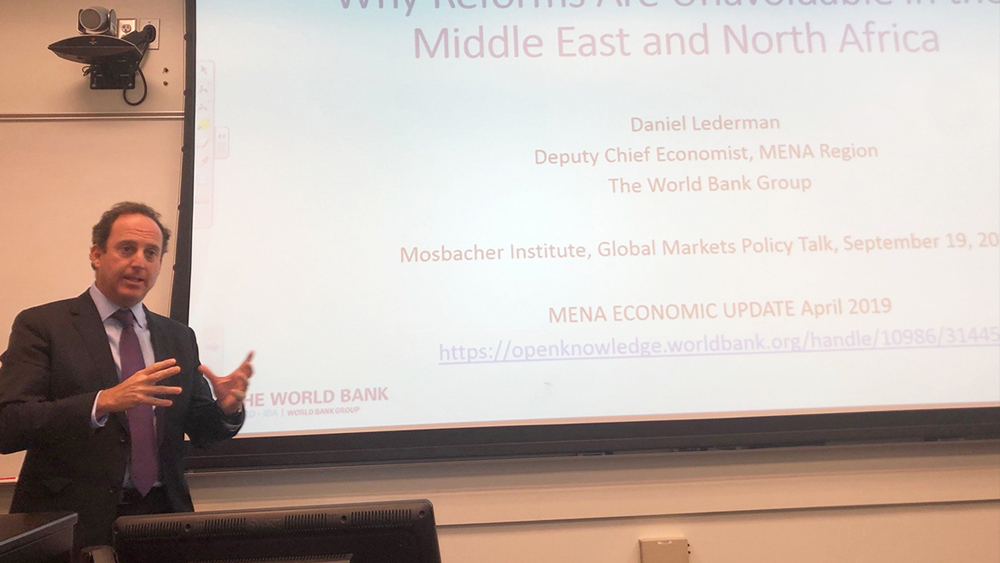
On Thursday, September 19, Dr. Daniel Lederman, Deputy Chief Economist for the Middle East and North Africa (MENA) region at the World Bank, gave a lecture titled “Why Reforms are Unavoidable in the Middle East and North Africa.” The lunch talk was hosted by Dr. Raymond Robertson and the Mosbacher Institute for Trade Economics and Public Policy at the Bush School of Government and Public Service, and was attended by about 60 Bush School students and faculty members.
Dr. Lederman described how the region is interconnected with wealthy nations subsidizing the trade imbalances and deficits of their poorer neighbors, which has allowed countries such as Algeria, Tunisia, and Lebanon to maintain large deficits as their household consumption increases. This has created a system in which some states are heavily reliant on state subsidies to maintain their economies.
Several shocks, however, have shaken the system. The 2008 financial crisis and the growth of renewable resources—solar power for example—have weakened the oil market, forcing wealthier nations to become a little stingier with their subsidies. Therefore, according to Lederman, nations who rely on state subsidies must reform. But, what type of reforms will assist the region?
In his presentation, Lederman argued for fiscal reforms that would lower start-up barriers and provide entrepreneurs the ability to compete with state-owned enterprises as a way to stabilize rising deficits. Such reforms would provide more opportunities for work to the general population, and with the structural changes, help institutionalize competitiveness within the MENA region. Lederman also addressed the need for getting women to work, saying technology advancements are making it possible to open paths for women to work within culture norms of the MENA region.
Lederman’s talk was based on an April 2019 World Bank regional report which can be found at https://www.worldbank.org/en/region/mena/publication/mena-economic-update-april-2019-reforms-and-external-imbalances.
